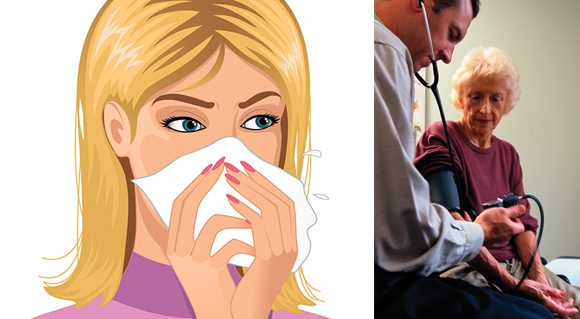Proper allergy care is critical to get the safest and best results from today’s state of the art understanding of allergic disease and its complications. A board-certified allergist is specifically trained to identify the causes and symptoms of asthma and allergies. After earning a medical degree, the physician completes a three year residency in training program either in internal medicine or pediatrics and then completes an additional 2-3 years in the field of allergy and immunology. Physicians certified by the American Board of Allergy and Immunology all have met these requirements. Unfortunately allergy testing and immunotherapy schemes are becoming more common. These practices expose patient and families to substandard diagnosis, treatment, and danger.
Third party companies provide “certified allergy technicians” that test patients and recommend treatment. Patients are testing for plethora of environmental and/or food allergies and are immediately offer treatment. These could be allergy shots or oral treatment. At this time the FDA has approved oral allergy tablets only for grass pollen.
Often these technicians are not fully trained and their treatment recommendations and inconsistent with the established standard of care. Sending patients home with self-treatment creates life-threatening risks.
Most oral allergy treatment is not FDA approved and is not covered by health insurance and bills should not be submitted. Other practices that increase reimbursement without offering any improvement in patient care include, excessive allergy testing, very low dose allergy shots given during very frequent visits and frequent repeat allergy skin testing.
The role of the primary care physician extends to diagnosis and treatment of allergy and asthma, including blood tests. Unless the primary care physician has the proper knowledge and training, allergy skin testing and allergy immunotherapy should only be provided by a board certified allergist.
Allergy testing schemes deprive patients of proper individualized care and expose then to the risk of a life-threatening allergic reaction during testing and treatment. Treatment should never be done at home.
What should I expect if I undergo allergy testing?
• A complete history of your allergy symptoms and allergies in your family
• Appropriate allergy testing: blood, skin or challenge tests
• Properly interpreted test results by a board certified allergist
• Any other test, such as a physical exam, that may necessary
• A detailed treatment plan that consists of allergy avoidance, medications and/or immunotherapy
What are my out of pocket costs for testing?
• Check you medical policy to see if allergy testing and treatment is covered and with what co-payment.
• Check you billing statements to ensure that treatment is billed properly.
• Avoid all procedures that are not covered and are billed directly to you.
• Discuss costs as part the plan of treatment.
Dr. Gontzes, is board certified in Allergy & Immunology and has 32 years of experience. He is a resident of Middle Village and a member of the Juniper Park Civic Association.
Peter Gontzes MD
9231 57th Ave
Elmhurst, NY 11373
(718) 592-1731



